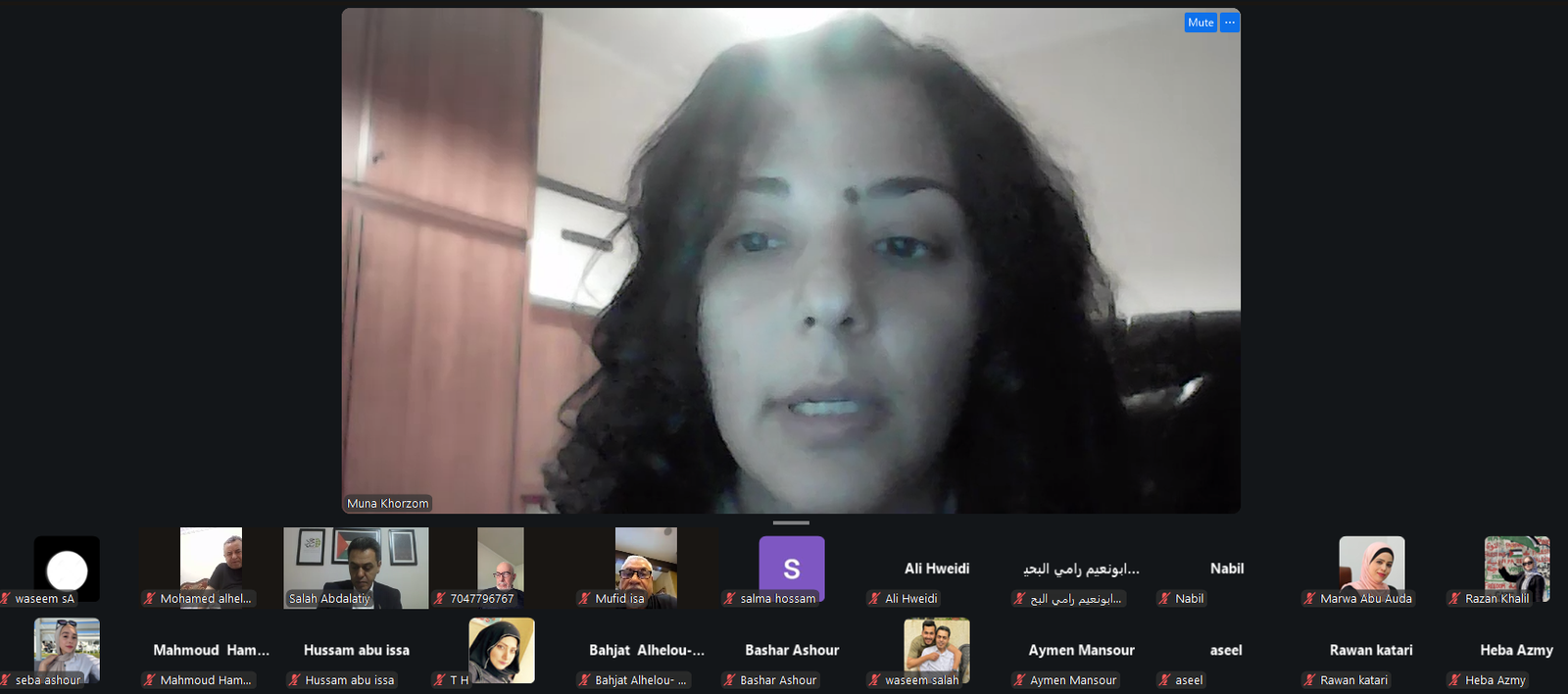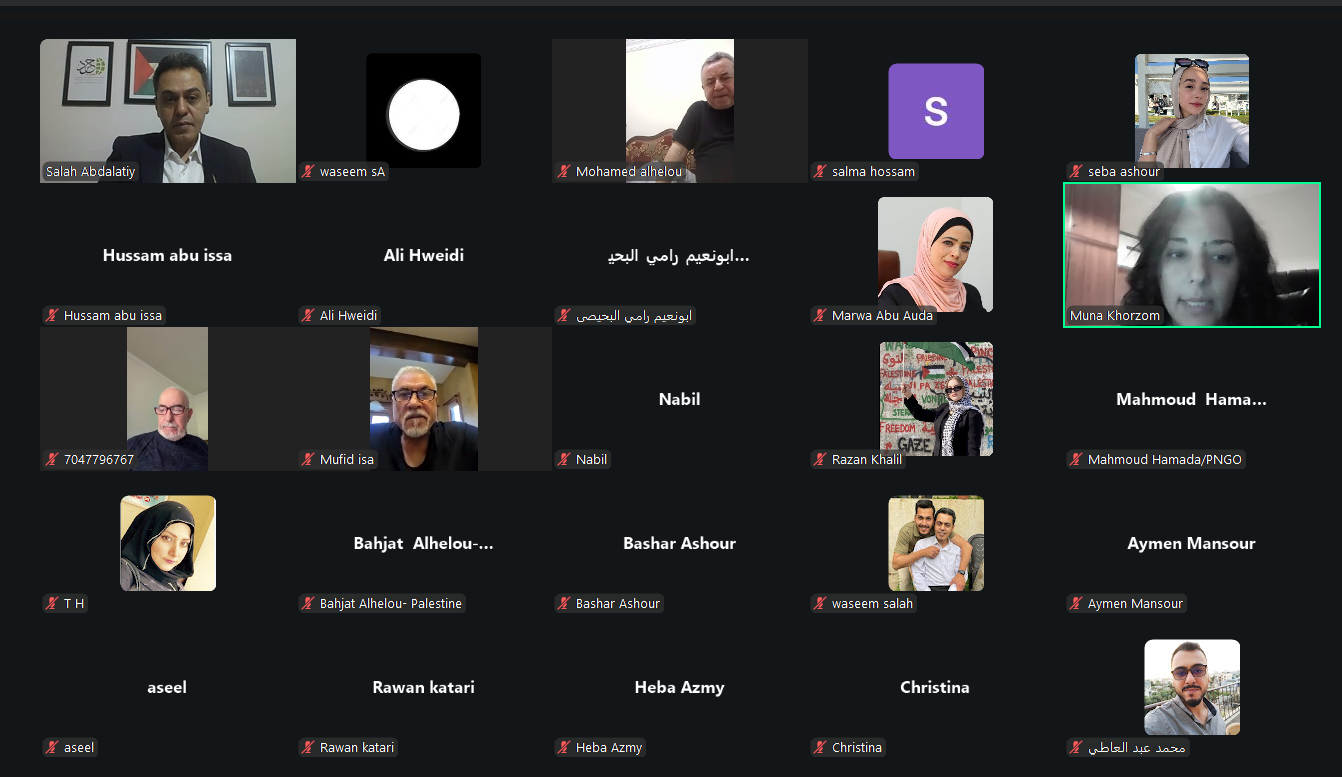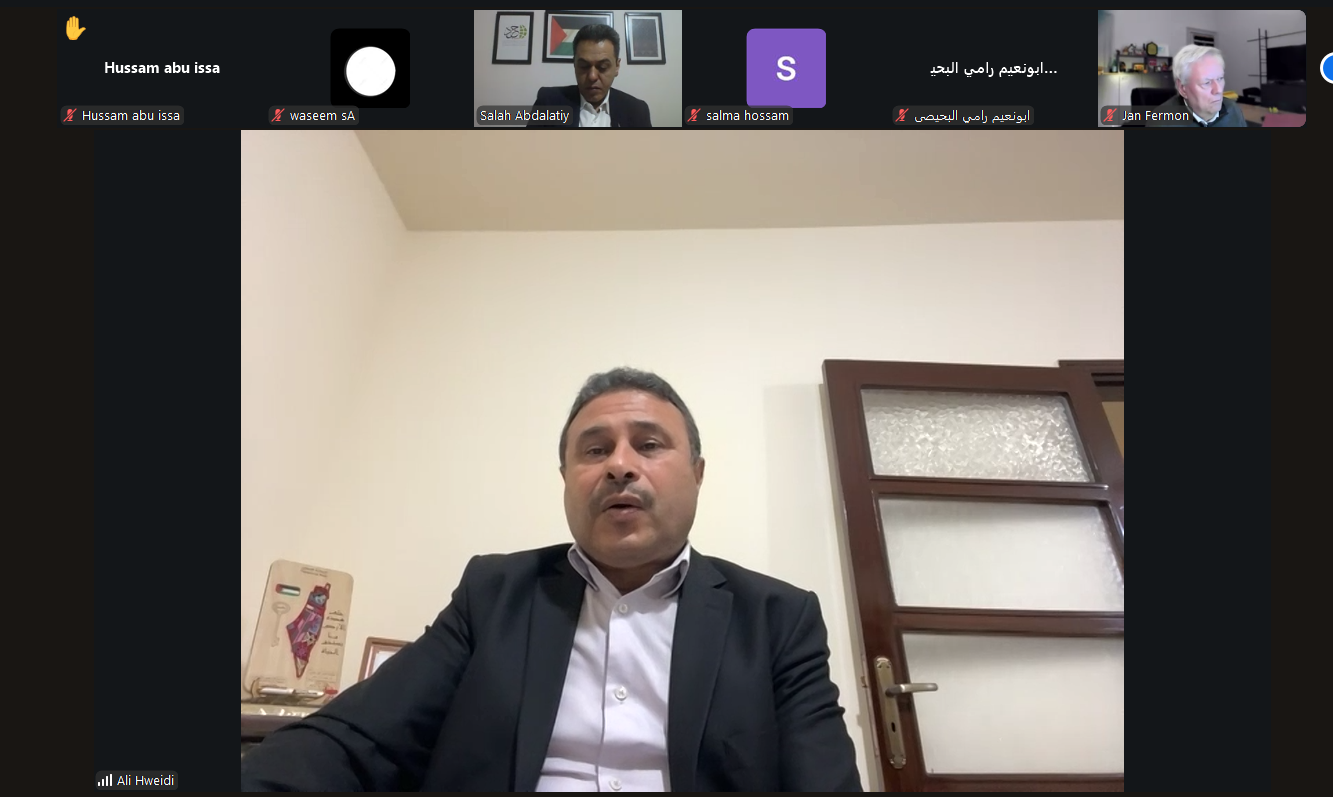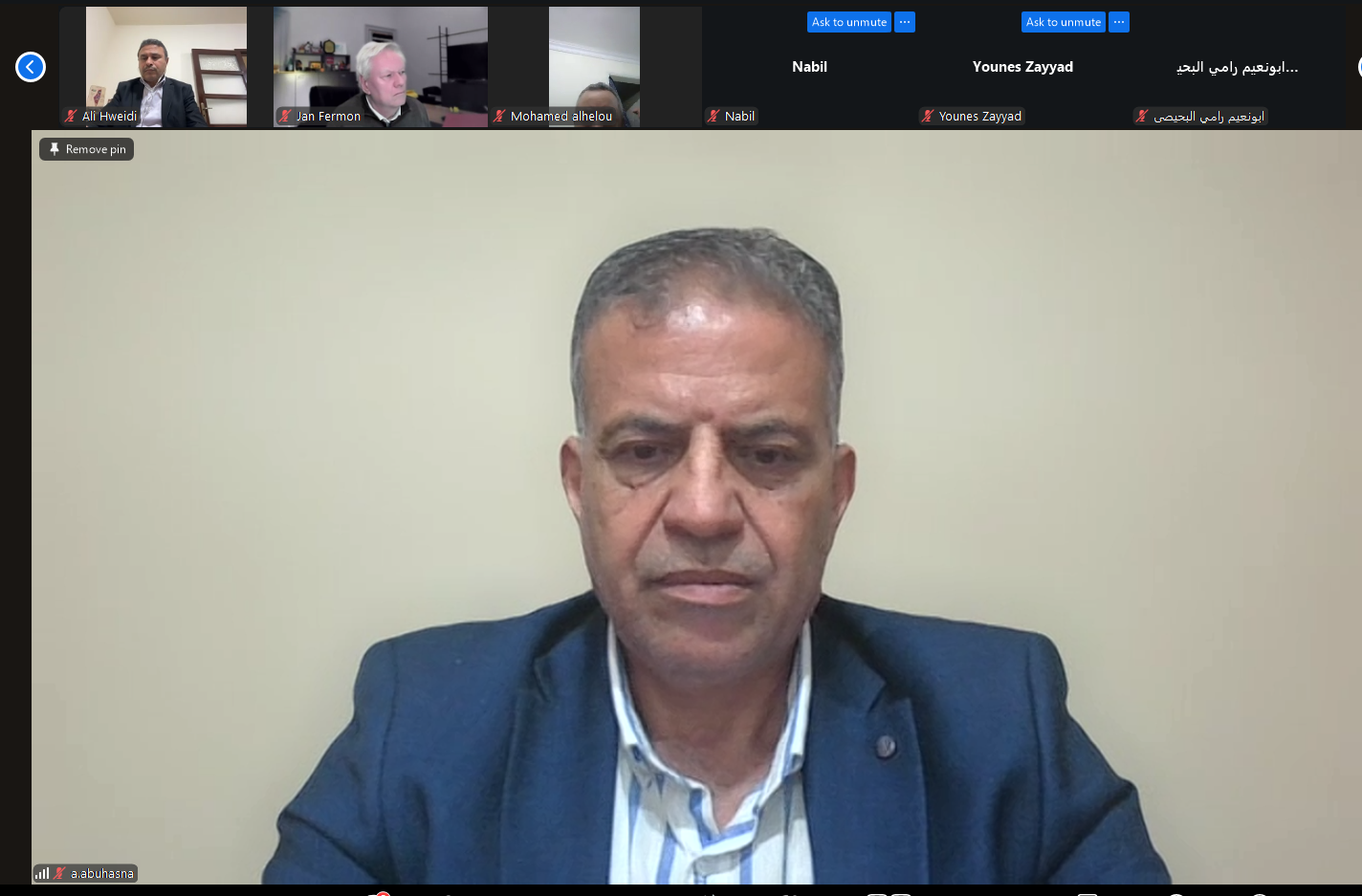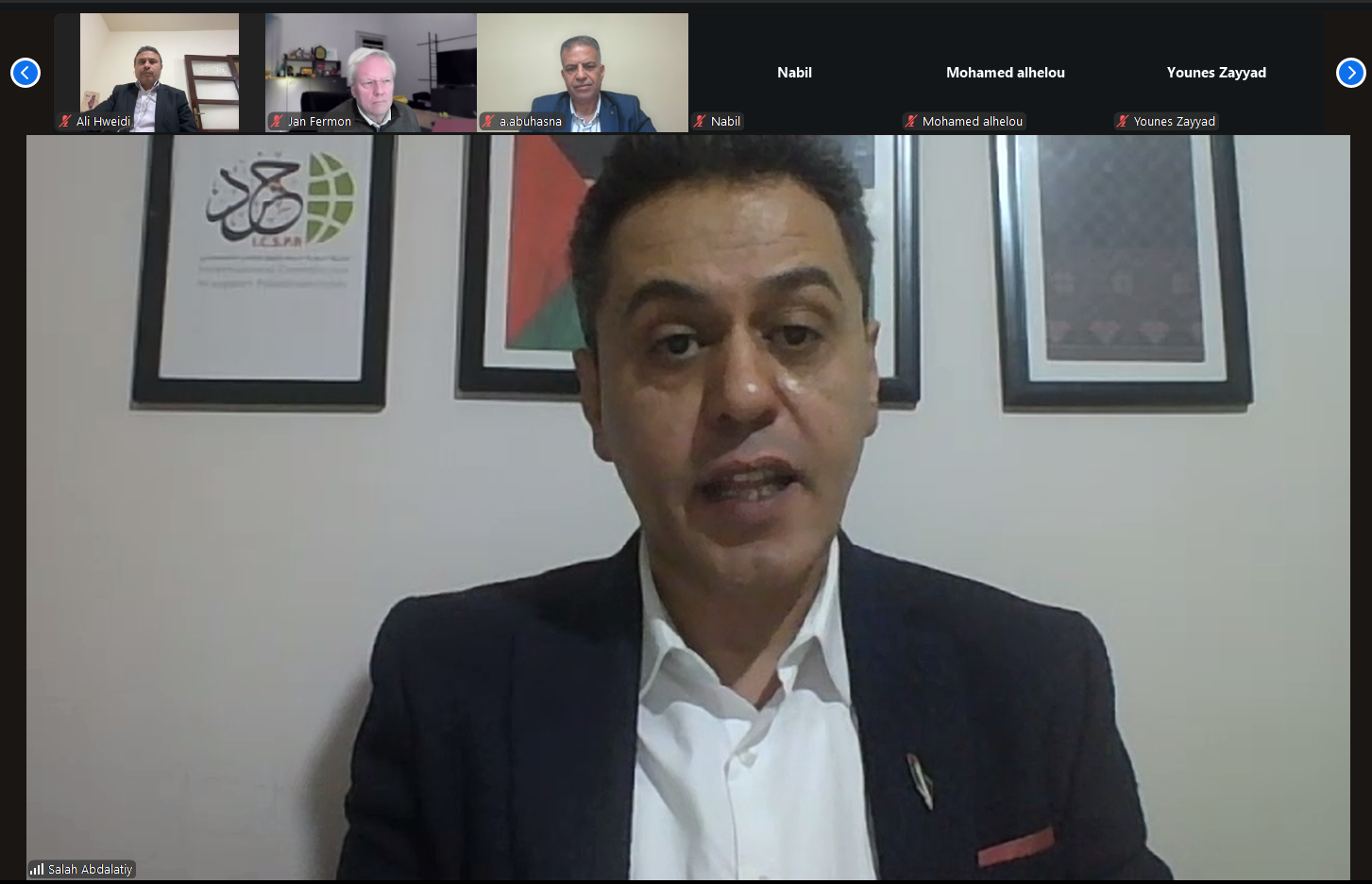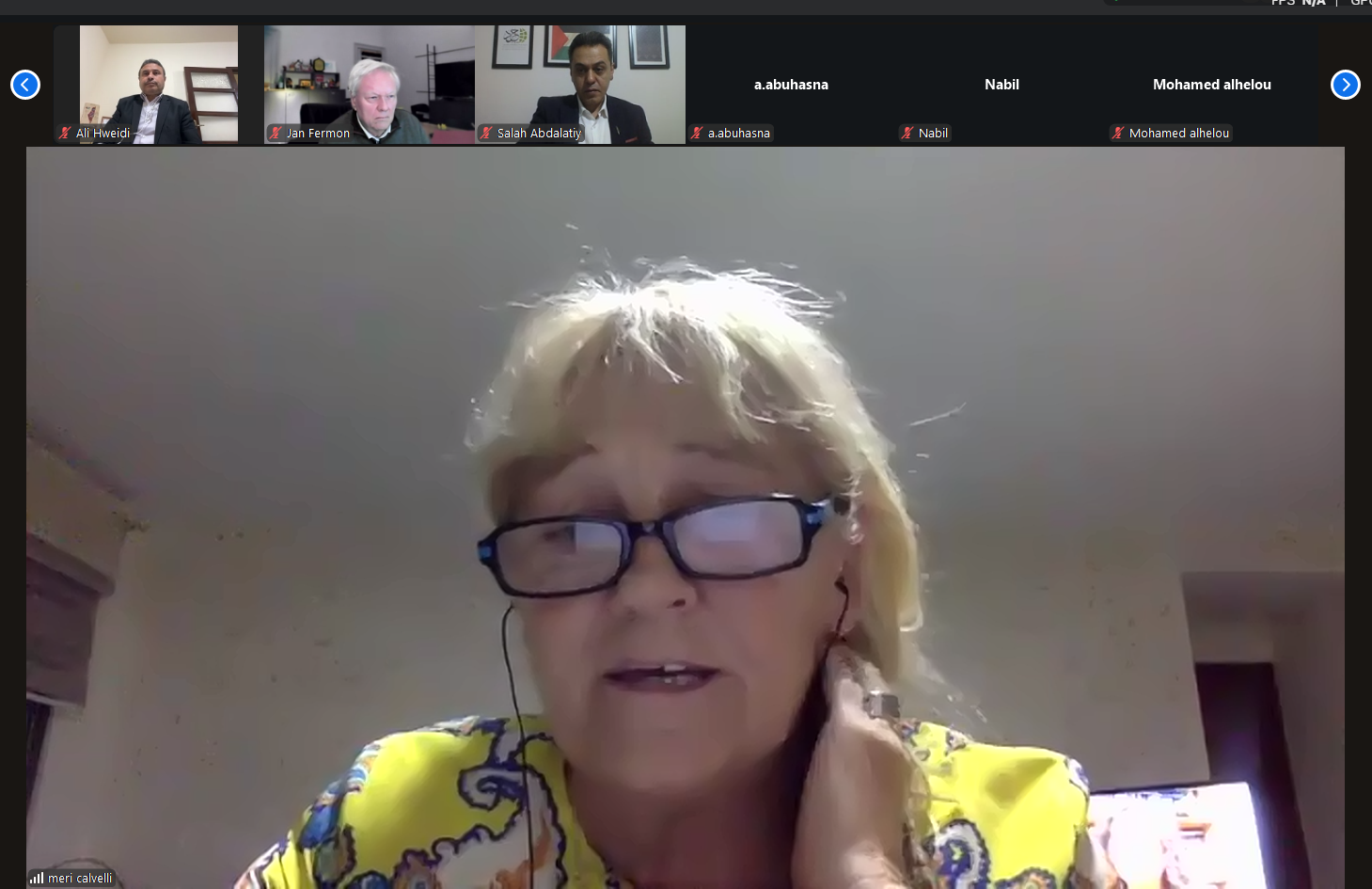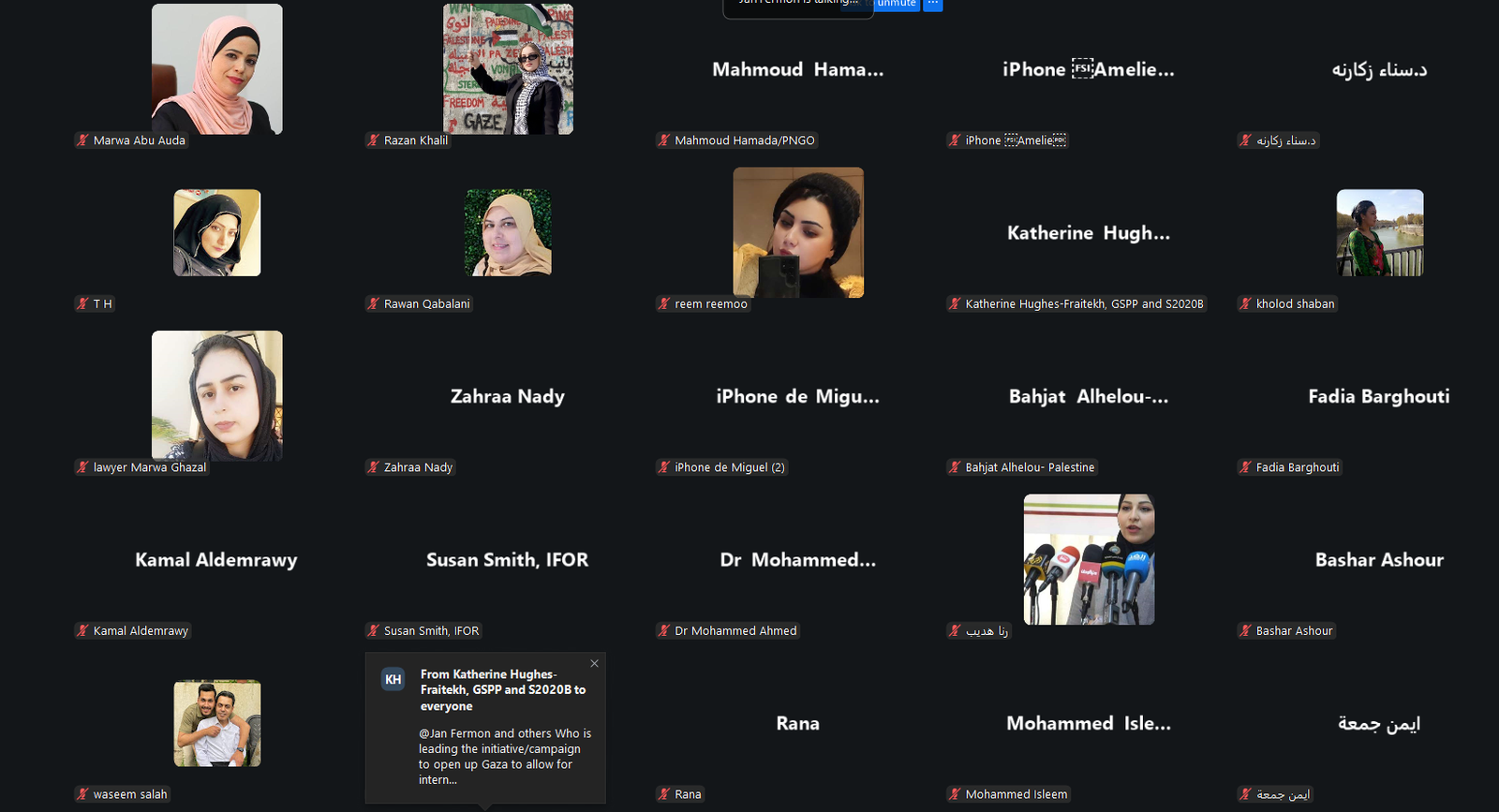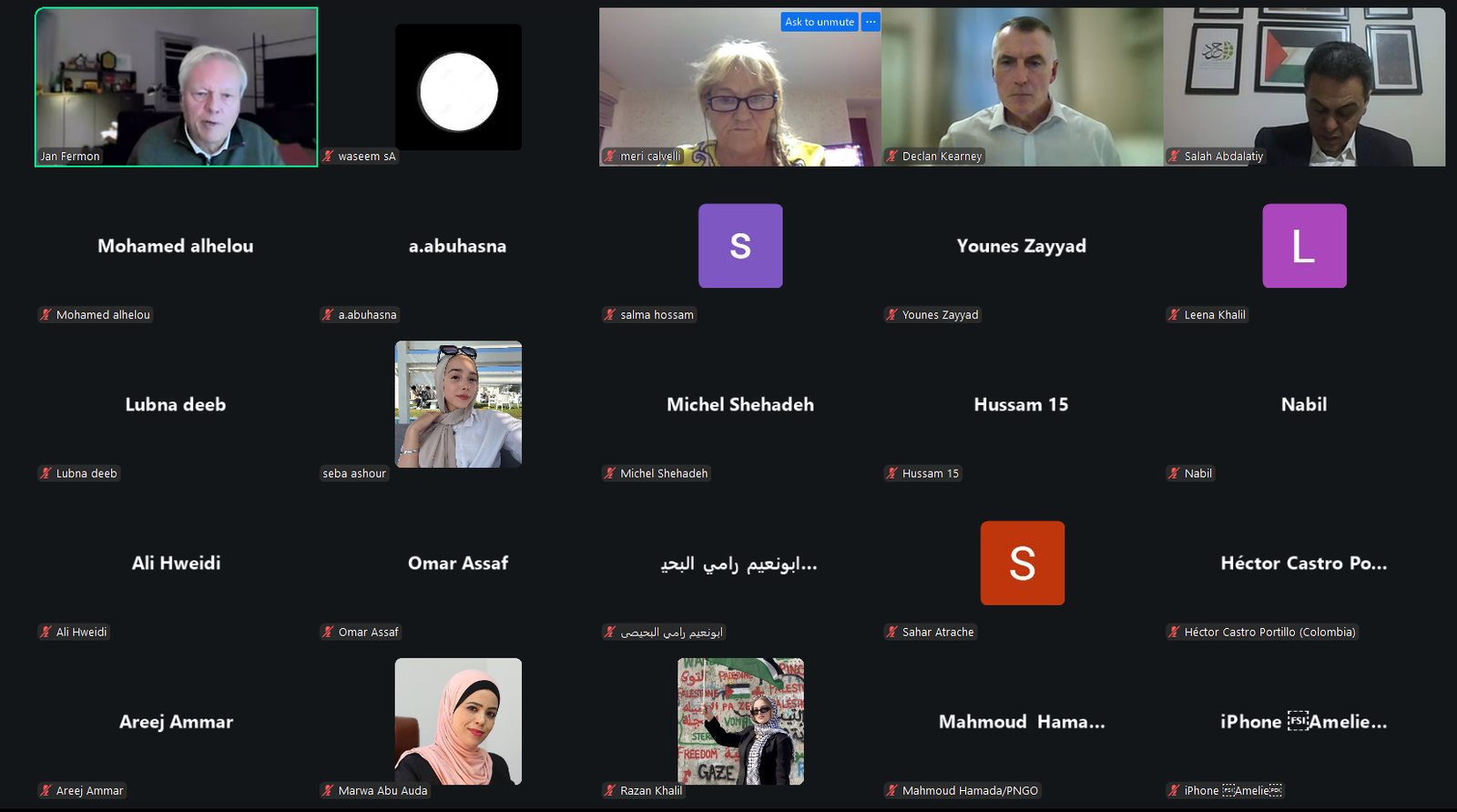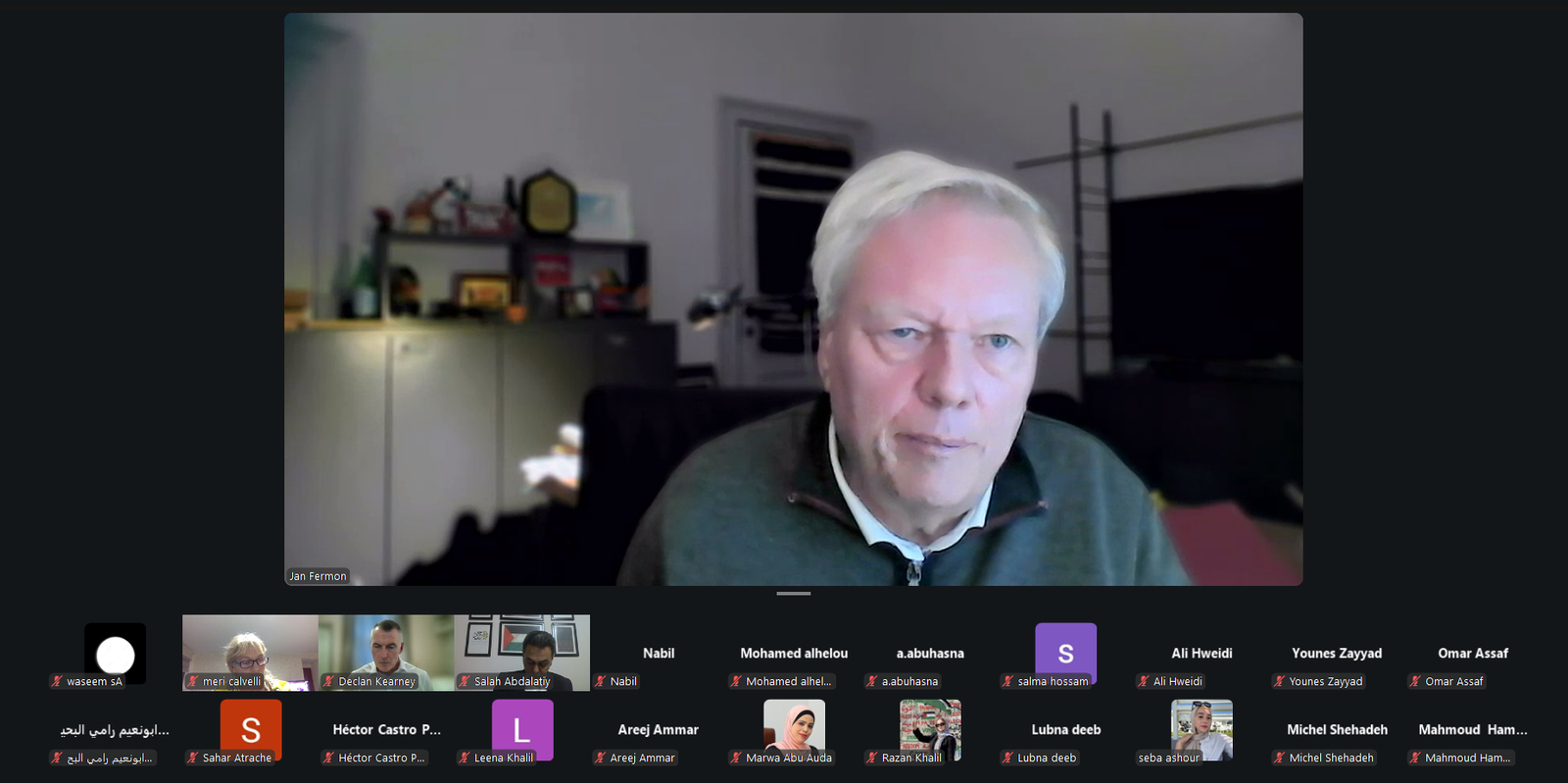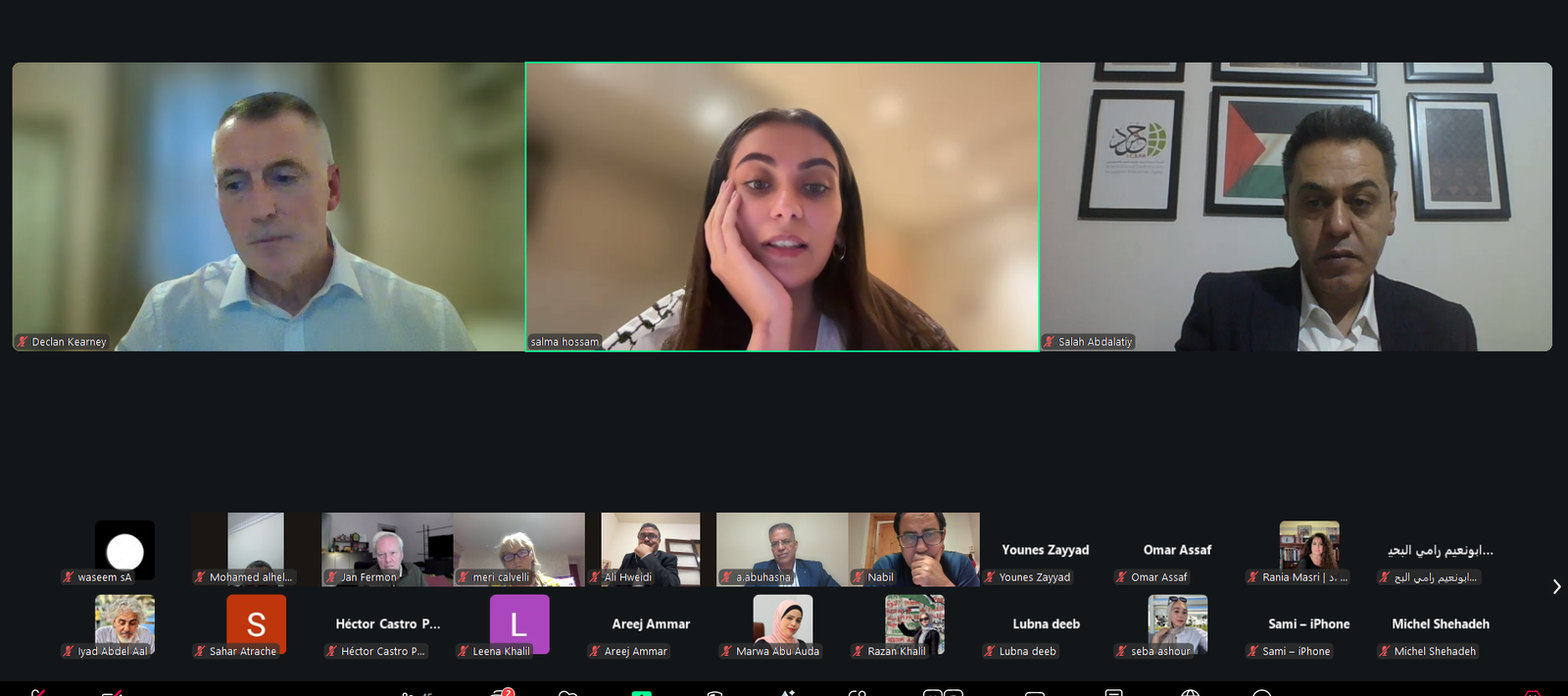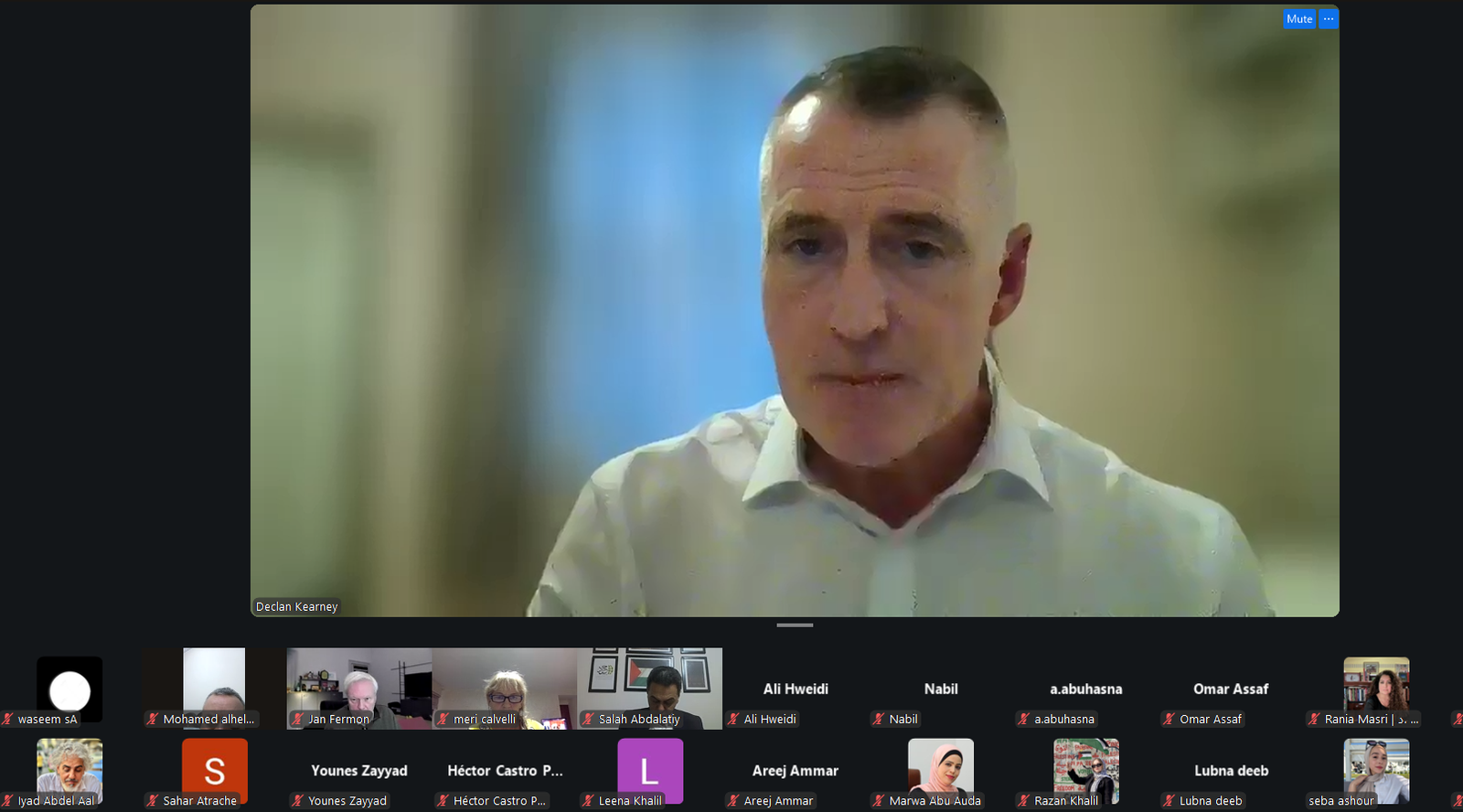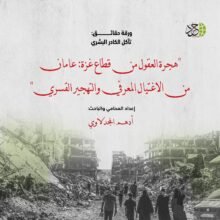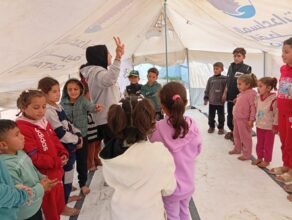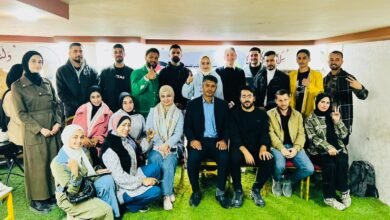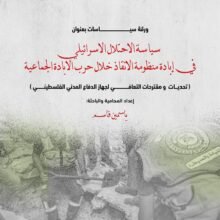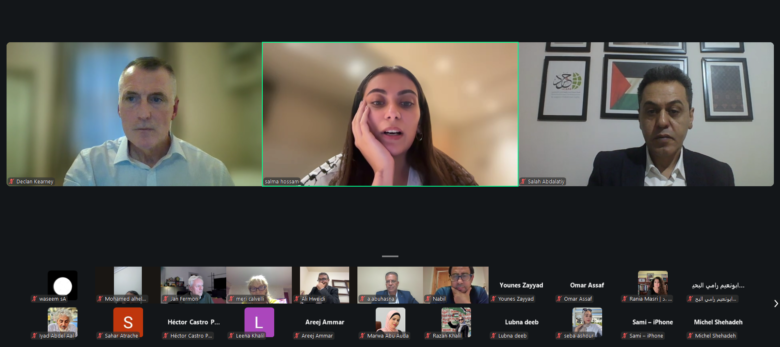
ICSPR Organizes an International Dialogue Session Entitled “Ways to Enhance Humanitarian Response and Ensure Justice in Gaza”
Date: October 23, 2025
Press Release
ICSPR Organizes an International Dialogue Session Entitled “Ways to Enhance Humanitarian Response and Ensure Justice in Gaza”
The International Commission to Support Palestinian Rights (ICSPR) organized on Wednesday evening, October 22, 2025, an international dialogue session via Zoom entitled “Ways to Enhance Humanitarian Response and Ensure Justice in Gaza,” with the participation of a distinguished group of international figures, human rights experts, and representatives of civil society organizations from Palestine and several Arab and European countries.
The session was held in the aftermath of the cessation of the Israeli aggression against the Gaza Strip, which lasted for two consecutive years and resulted in an unprecedented humanitarian catastrophe. More than 80,000 people were killed or went missing, over 170,000 were injured, and around 90% of the Strip’s buildings and infrastructure were destroyed.
The session opened with a welcoming address by Salma Al-Madhoun, a researcher at ICSPR, who affirmed that the meeting came amid catastrophic humanitarian conditions endured by Gaza’s population after the aggression. She explained that the discussion aimed to explore ways to enhance urgent humanitarian response, activate international justice mechanisms, and ensure accountability for crimes committed against Palestinian civilians.
The session began with remarks by Mr. Declan Kearney, National Chairperson, Sinn Féin, Ireland, who addressed the situation in Gaza from a political and moral perspective, describing what has happened in the Strip as a stain on the conscience of humanity.
Kearney emphasized that true power lies in the will of the people and global solidarity movements, rather than in official international institutions, which he described as “hostages to the political interests of major powers.” He added that solidarity with Palestine has reached its historic peak, as European and American capitals are witnessing massive demonstrations involving hundreds of thousands of participants — a reflection of a major global shift in awareness of the Palestinian cause.
He stressed that Israel has lost the war politically and morally, despite the continuation of its field crimes, calling for a global campaign for accountability and boycott and for halting arms exports to the Israeli war machine. He concluded that peace cannot be achieved without justice, and justice cannot be achieved without accountability.
For his part, Mr. Jean Vermeeren, former Secretary-General of the International Association of Democratic Lawyers, delivered a legal intervention affirming that what is taking place in Gaza constitutes a blatant violation of international humanitarian law and the four Geneva Conventions. He pointed out that the absence of political will among major powers continues to obstruct justice.
Vermeeren called for activating the principle of universal jurisdiction to prosecute perpetrators of crimes against humanity, regardless of where the crimes occurred or the nationality of the perpetrators, emphasizing that this principle represents a real tool to combat impunity. He also stressed the importance of supporting Palestinian human rights institutions deliberately targeted by the Israeli occupation to weaken their capacity for documentation and accountability. Vermeeren further urged the reinforcement of human rights efforts to ensure that perpetrators of genocide in Gaza do not escape punishment and that the victims receive justice and reparation.
In his intervention, Mr. Adnan Abu Hasna, spokesperson for the United Nations Relief and Works Agency for Palestine Refugees (UNRWA), presented the latest developments regarding the agency’s work following the recent advisory opinion by the International Court of Justice, which reaffirmed UNRWA’s neutrality and vital humanitarian role.
He explained that UNRWA provides essential services in education to more than 300,000 students, and during the genocidal war delivered over 10 million medical visits, in addition to managing 20 shelter centers in Gaza City, solid waste collection, and water distribution. Abu Hasna emphasized that the agency serves as the primary humanitarian lifeline connecting the Palestinian people with universal values of justice and human rights, despite the ongoing Israeli political and media campaign to undermine its credibility.
He underlined the importance of UNRWA’s operations in Gaza and called for compelling Israel to respect international law, lift all restrictions on the agency’s work — which forms the backbone of humanitarian and relief efforts in the Strip — and for the international community to increase funding and exert pressure to allow the entry of thousands of aid trucks to Gaza to ensure a greater and more effective humanitarian response.
Meanwhile, Ms. Marie Calvelli, a representative of Italian civil society, stated that what is happening in Palestine is a continuation of a long-term process of genocide, whose most horrific manifestation was the two-year-long genocidal war in Gaza, which still continues “beneath the surface” in shameful international silence. She criticized Europe’s inaction in taking meaningful measures to stop the crimes, stressing that popular movements across Europe and the world are expanding daily, demanding the opening of crossings and the immediate facilitation of humanitarian aid access.
In turn, Dr. Salah Abdul Ati, Chairman of ICSPR, praised the participants’ interventions and their principled positions in support of international law and Palestinian rights.
Dr. Abdul Ati explained that Gaza is facing an unprecedented level of humanitarian catastrophe resulting from genocide, as around 80,000 people have been killed, 170,000 injured, and 90% of Gaza’s residents forcibly displaced, living in tents and open areas under catastrophic conditions. He added that 90% of homes and infrastructure have been destroyed, including hospitals and health centers, while over 1,700 medical personnel have been targeted and 255 journalists killed, in a systematic attempt to conceal the truth and suppress international media coverage.
He noted that the humanitarian aid entering the Strip meets only a fraction of the population’s needs, stressing that UNRWA remains the most capable and reliable body in providing relief and calling for intensified international support to the agency.
Abdul Ati further emphasized that international justice must not be delayed, and that Israel, as an occupying power, must be held accountable for its crimes. He highlighted the roles played by ICSPR and civil society during the genocide and criticized the slow response of international justice institutions. He called on humanity to confront what he described as the Israeli-American law of the jungle, commending human rights activists, civil society, and global advocates whose mobilization played a decisive role in halting the genocide and transforming global consciousness in support of Palestinian rights.
He urged the continuation of international efforts until the occupation is ended and full accountability is ensured before international courts, affirming that reconstruction cannot substitute for justice, nor serve as an excuse to bypass Palestinian rights.
At the conclusion of the session, participants expressed broad engagement and deep solidarity with the suffering of the Palestinian people, reaffirming their commitment to continuing humanitarian, legal, rights-based, and media efforts to support the Palestinian cause, enhance humanitarian response, and advance justice and accountability for crimes committed in Gaza.


